Misoprostol
Synonym(s):(±)-15-Deoxy-(16RS)-16-hydroxy-16-methylprostaglandin E1;(±)-15-Deoxy-(16RS)-16-hydroxy-16-methylprostaglandin E1 methyl ester
- CAS NO.:59122-46-2
- Empirical Formula: C22H38O5
- Molecular Weight: 382.54
- MDL number: MFCD07772001
- EINECS: 664-288-5
- SAFETY DATA SHEET (SDS)
- Update Date: 2025-12-07 19:09:50

What is Misoprostol?
Absorption
For an 800μg oral dose of misoprostol, the AUC was 2.0192±0.8032h*ng/mL, the Cmax was 2.6830±1.2161ng/mL, and a tmax of 0.345±0.186h. For a 800μg sublingual dose of misoprostol, the AUC was 3.2094±1.0417h*ng/mL, the Cmax was 2.4391±1.1567ng/mL, and a tmax of 0.712±0.415h. For a 800μg buccal dose of misoprostol, the AUC was 2.0726±0.3578h*ng/mL, the Cmax was 1.3611±0.3436ng/mL, and a tmax of 1.308±0.624h.
Toxicity
The oral LD50 in rats is 81mg/kg and in mice is 27mg/kg. The intraperitoneal LD50 in rats is 40mg/kg and in mice is 70mg/kg.
Patients experiencing an overdose may present with sedation, tremor, convulsions, dyspnea, abdominal pain, diarrhea, fever, palpitations, hypotension, and bradycardia. Hemodialysis is not expected to be useful in the treatment of misoprostol overdose but oral activated charcoal may help reduce absorption. In the event of an overdose, treat symptoms with supportive therapy. This may include removal of undissolved tablets from the vagina or buccal cavity, intravenous fluid replacement, acetaminophen, diazepam, haloperidol, or intramuscular diclofenac depending on the symptoms that present.
Description
Misoprostol is an orally-active PGEl analog useful in the treatment of gastric and duodenal ulcers. As with other agents of this type, misoprostol may prove useful as a gastric cytoprotective when administered concurrently with irritating drugs such as nonsteroidal antiinflammatories.
Chemical properties
Misoprostol is a yellow, viscous liquid with a musty odour. Miscible with ethanol, ether or chloroform, extremely insoluble in water or n-hexane. Very unstable at room temperature and undergoes thermal epimerization to the 8-isomer. It is also extremely sensitive to the Ph value. It removes the hydroxyl group at the 11α position in acidity and alkalinity, converts it into A-type prostaglandins, and isomerizes into B-type prostaglandins. However, it is relatively stable in the dispersion system of hydroxypropyl methylcellulose and can be stored at room temperature.
Originator
Searle (USA)
The Uses of Misoprostol
Misoprostol is a cytoprotective prostaglandin PGE1 analogue that inhibits gastric acid secretion. It has many medical uses, including nine obstetric indications. The drug was originally produced by Pfizer for the treatment of gastric ulcers. Misoprostol is commonly used to prevent NSAID-induced gastric ulcers in patients at high risk of complications from a gastric ulcer, such as elderly patients and patients with a history of ulcer. It has also been used in treating duodenal ulcers unresponsive to histamine H2-antagonists; the drug does not prevent duodenal ulcers,however, in patients taking NSAIDS. Misoprostol can cause miscarriage, often associated with potentially dangerous bleeding.
Background
Misoprostol is a prostaglandin analog used to reduce the risk of NSAID related ulcers, manage miscarriages, prevent post partum hemorrhage, and also for first trimester abortions. The stimulation of prostaglandin receptors in the stomach reduces gastric acid secretion, while stimulating these receptors in the uterus and cervix can increase the strength and frequency of contractions and decrease cervical tone.
Misoprostol was granted FDA approval on 27 December 1988.
Indications
Misoprostol is indicated as a tablet to reduce the risk of NSAID induced gastric ulcers but not duodenal ulcers in high risk patients. Misoprostol is also formulated in combination with diclofenac to treat symptoms of osteoarthritis or rheumatoid arthritis in patients with a high risk of developing gastric ulcers. Misoprostol is used off label for the management of miscarriages, prevention of post partum hemorrhage, and is also used alone or in combination with mifepristone in other countries for first trimester abortions.
Indications
Misoprostol (Cytotec), which is an analogue of prostaglandin E1, has been approved for use in the prevention of nonsteroidal antiinflammatory drug–induced ulceration. It also is approved in other countries for the treatment of peptic ulcer disease.
Preparation
synthesis of Misoprostol
To a 1000 ml dried flask under a nitrogen atmosphere was added 74.6 g of(E)-trimethyl-[[1-methyl-1-[3-(tributylstannyl)-2-propenyl]pentyl]oxy]silane,125 ml anhydrous THF and 24.2 g of copper (I) iodide. The mixture wasstirred at room temperature for 30 minutes and then it was cooled to -25 to -30°C. 98.8 ml of methyllithium (2.86 M) in DEM was added dropwise and theresultant solution was stirred at -15°C for 2 hours. Then the reaction mixturewas cooled to -78°C and 25 g of methyl-5-oxo-3-[(triethylsilyl)oxy]-1-cyclopentene-1-heptanoate in 100 ml of THF was added rapidly. After stirringthe mixture for 5 min at -78°C, it was quenched into a mixture of 750 ml ofaqueous ammonium chloride solution and 200 ml of ammonium hydroxide.The resulting mixture was warmed to room temperature and stirred until adeep blue aqueous layer was obtained. Ethyl acetate (250 ml) was used forextraction. Then the combined organic layers were washed with brine andsubsequently dried over magnesium sulfate. After a filtration andconcentration under reduced pressure, an oil (105 g) was obtained. This oilcontaining the protected prostaglandin was subjected to acidic deprotection(cat. PPTS, acetone and water) and purification (chromatography on silica gel)to provide 15.8 g (60%) of misoprostol was identical.
Definition
ChEBI: 7-[(1R,2R,3R)-3-hydroxy-2-(4-hydroxy-4-methyloct-1-enyl)-5-oxocyclopentyl]heptanoic acid methyl ester is a prostanoid.
brand name
Cytotec (Searle);Cyprostol;Oxaprost;Prostalgin.
Therapeutic Function
Antiulcer
General Description
Misoprostol, (16-(R,S)-methyl-16-hydroxy)-PGE1, methyl ester (Cytotec), is a modified prostaglandinanalog that shows potent gastric antisecretory and gastroprotectiveeffects when administered orally. Misoprostol isadministered orally in tablet form in a dose of 100 to 200 μg4 times a day to prevent gastric ulceration in susceptibleindividuals who are taking NSAIDs. Misoprostol is combinedwith the NSAID diclofenac (Voltaren) in an analgesic product(Arthrotec by Pharmacia), which is potentially safe for longtermantiarthritic therapy. This prostaglandin derivative absolutelyshould be avoided by pregnant women because of itspotential to induce abortion. In fact, the combined use of intramuscularmethotrexate and intravaginal misoprostol has beenclaimed to be a safe and effective, noninvasive method for thetermination of early pregnancy.
Biological Activity
Cytoprotective prostaglandin E 1 analog that displays agonist activity at EP receptors. K i values are 120, 250, 67 and 67 nM at cloned mouse EP 1 , EP 2 , EP 3 and EP 4 receptors respectively. Prevents NSAID-induced gastric ulceration.
Pharmacokinetics
Misoprostol is a prostaglandin E1 analog used to reduce the risk of NSAID induced gastric ulcers by reducing secretion of gastric acid from parietal cells. Misoprostol is also used to manage miscarriages and used alone or in combination with mifepristone for first trimester abortions. An oral dose of misoprostol has an 8 minute onset of action and a duration of action of approximately 2 hours, a sublingual dose has an 11 minute onset of action and a duration of action of approximately 3 hours, a vaginal dose has a 20 minute onset of action and a duration of action of approximately 4 hours, and a rectal dose has a 100 minute onset of action and a duration of action of approximately 4 hours.
Pharmacology
Misoprostol is absorbed rapidly after oral administration and is hydrolyzed to the active compound. It is metabolized by the liver and excreted mainly in the urine. Adverse effects include crampy abdominal pain, dose-related diarrhea, and uterine contractions. The last-named effect has led to its use in the control of postpartum bleeding.
Clinical Use
Benign gastric and duodenal ulceration and NSAID
associated ulceration
Prophylaxis of NSAID induced ulceration
Veterinary Drugs and Treatments
Misoprostol may be useful as primary or adjunctive therapy in
treating or preventing
gastric ulceration, especially when caused
or aggravated by non-steroidal antiinflammatory drugs (NSAIDs).
Misoprostol is most useful to prevent GI ulceration or GI adverse
effects (anorexia, vomiting) associated with NSAID therapy. While
it can be used for treating gastric ulcers, other drugs are probably
just as effective and less expensive. It does not appear to be very
effective in reducing gastric ulceration secondary to high dose corticosteroid
therapy
Misoprostol may be efficacious in reducing or reversing cyclosporine-
induced nephrotoxicity. More data is needed to confirm
this effect.
One study demonstrated that misoprostol can reduce the clinical
signs associated with atopy somewhat in dogs.
Misoprostol’s effects on uterine contractibility and cervical softening/
opening make it effective as an adjunctive treatment in pregnancy
termination.
Side Effects
Common side effects include diarrhea and abdominal pain. It is in pregnancy category X, meaning that it is known to result in negative outcomes for the fetus if taken during pregnancy. In rare cases, uterine rupture may occur. It is a prostaglandin analogue—specifically, a synthetic prostaglandin E1 (PGE1).
Metabolism
Misoprostol is de-esterified to its active metabolite, misoprostol acid, also known as SC-30695. This metabolite is further reduced to dinor and tetranor metabolites (SC-41411), a prostaglandin F1 (PGF1) analog of SC-41411, and a ω-16-carboxylic acid derivative. However, the majority of these metabolites are not well described in the literature.
Metabolism
Rapidly metabolised to its active form (misoprostol acid) after oral doses. Misoprostol acid is further metabolised by oxidation in several body organs and is excreted mainly in the urine.
Storage
Desiccate at -20°C
Mode of action
Misoprostol is a synthetic prostaglandin E1 analogue which has ulcer healing, gastric acid antisecretory and mucosal protective properties. The antisecretory activity is mediated by direct action on specific prostaglandin receptors on the surface of gastric parietal cells. In dogs with innervated Pavlov pouches, inhibition of secretion is achieved at a lower dosage by intrapouch injection than by intravenous or intragastric administration, suggesting that the local effect may predominate. The mucosal protective effect against various damaging agents has been demonstrated in humans with doses that inhibit and doses which minimally affect acid secretion.
Properties of Misoprostol
| Melting point: | 261-263°C |
| Boiling point: | 429.67°C (rough estimate) |
| Density | 1.0323 (rough estimate) |
| refractive index | 1.6120 (estimate) |
| storage temp. | Sealed in dry,Store in freezer, under -20°C |
| solubility | Practically insoluble in water, soluble in ethanol (96 per cent), sparingly soluble in acetonitrile. |
| form | neat |
| pka | 13.92±0.60(Predicted) |
| CAS DataBase Reference | 59122-46-2(CAS DataBase Reference) |
| EPA Substance Registry System | Misoprostol (59122-46-2) |
Safety information for Misoprostol
| Signal word | Danger |
| Pictogram(s) |
 Skull and Crossbones Acute Toxicity GHS06  Health Hazard GHS08 |
| GHS Hazard Statements |
H301:Acute toxicity,oral H360:Reproductive toxicity |
| Precautionary Statement Codes |
P201:Obtain special instructions before use. P280:Wear protective gloves/protective clothing/eye protection/face protection. P308+P313:IF exposed or concerned: Get medical advice/attention. |
Computed Descriptors for Misoprostol
Misoprostol manufacturer
ALS India Life Sciences Pvt. Ltd
Clickchem Research LLP
New Products
4,4-Difluoropiperidine hydrochloride tert-butyl 9-methoxy-3-azaspiro[5.5]undecane-3-carboxylate Indole Methyl Resin N-Isopropylurea N,N-Dicyclohexylcarbodiimide(DCC) MELDRUMS ACID 5-METHYLISOXAZOLE-4-CARBOXYLIC ACID Magnessium Bis glycinate Zinc ascorbate 1-bromo-2-butyne 2-acetamidophenol 9(10H)-anthracenone Erythrosin B, 4-Piperidinopiperidine 2-((4-morpholinophenylamino) (methylthio) methylene) malononitrile 2,4-dihydroxybenzaldehyde 3-(4-morpholinophenylamino)-5-amino-1H-pyrazole-4-carbonitrile Methyl 2-methylquinoline-6-carboxylate 2,6-dichloro-4-nitropyridine 4-Bromo-2-chlorobenzonitrile 2-(benzylamino)acetic acid hydrochloride 4-(tert-Butoxycarbonylamino)but- 2-ynoic acid 3,4-dihydro-2H-benzo[b][1,4]dioxepine 1-Phenyl-1-cycloprppanecarboxylicacidRelated products of tetrahydrofuran

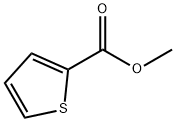
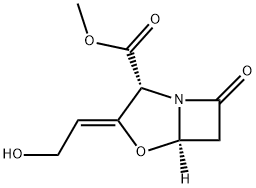
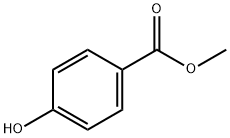
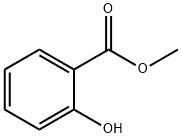
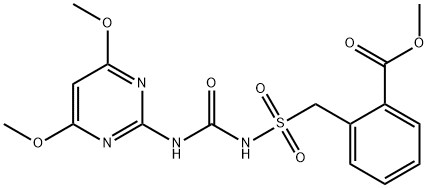


You may like
-
 Misoprostol 59122-46-2 98%View Details
Misoprostol 59122-46-2 98%View Details
59122-46-2 -
 59122-46-2 Misoprostol 98%View Details
59122-46-2 Misoprostol 98%View Details
59122-46-2 -
 59122-46-2 99%View Details
59122-46-2 99%View Details
59122-46-2 -
 Misoprostol 59122-46-2 98%View Details
Misoprostol 59122-46-2 98%View Details
59122-46-2 -
 Misoprostol CAS 59122-46-2View Details
Misoprostol CAS 59122-46-2View Details
59122-46-2 -
 Misoprostol CAS 59122-46-2View Details
Misoprostol CAS 59122-46-2View Details
59122-46-2 -
 59122-46-2 72.96%View Details
59122-46-2 72.96%View Details
59122-46-2 -
 Misoprostol (1%) HPMC, USPView Details
Misoprostol (1%) HPMC, USPView Details
59122-46-2
